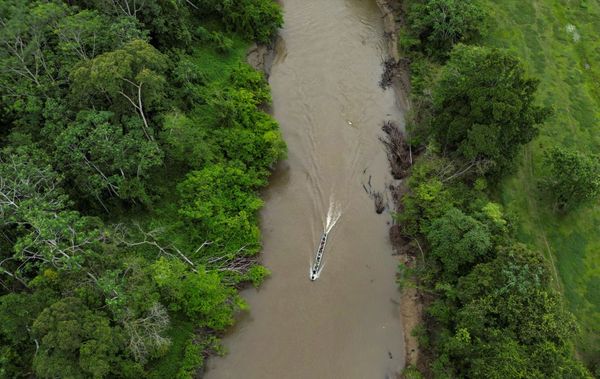A number of countries including Greece and Spain have updated their travel rules just in time for the British February half term.
Many families will be keen to get abroad over the next few weeks, as schools across the UK break up.
With coronavirus rules and restrictions changing so frequently, it's important to keep up to date if you have plans to travel.
READ MORE: France, Spain and Denmark change travel rules for holidaymakers
While there are plenty of reasons for optimism, a long list of countries still currently bans UK travellers - and this can be found here.
However, European countries such as France and Germany have recently reopened their borders to Brits, while Spain has this week announced it is to relax restrictions again.
Here's everything you need to know about updated travel rules.
Spain
New rules, brought in on February 1, state at least 14 days must have passed since being fully vaccinated (with both doses of a 2-dose vaccine or one dose of a single-dose vaccine) before arrival in Spain.
Your date(s) of vaccination must be specified and your final dose must have been administered within 270 days prior to travel to Spain.
If you completed your vaccination (with both doses of a 2-dose vaccine or one dose of a single-dose vaccine) more than 270 days prior to travel to Spain, you must be able to show proof of having receiving a booster jab.
Under the Spanish government’s current measures, you can only enter Spain from the UK for tourism purposes if you can show valid proof of meeting the vaccination requirements set out above.
From as soon as Thursday (February 10) a current rule that means it is mandatory to wear a face mask outdoors - including on beaches and around swimming pools - could be dropped, according to Minister of Health Carolina Darias.
France
Travellers aged over 18 and one months who had their full vaccine course over nine months ago and have not since received a Covid-19 vaccine booster must follow the rules for unvaccinated passengers to enter France.
Travellers from the UK who are not boosted are treated as "unvaccinated" - unvaccinated travellers will need to self-isolate on arrival in France for 10 days, subject to police checks.
You must also provide:
- a negative PCR or antigen test result taken within 24 hours pre-departure if aged 12 years and over
- contact details before travel to France, including the address they will be staying at, to the French authorities via an online form
- a completed international travel form to prove the reason for essential travel. This can be found on the French government’s website. In exceptional circumstances, the French Consulate in London may be able to assist with travel for a compelling reason not listed as an ‘essential reason for travel’
- a completed ‘sworn statement’ (déclaration sur l’honneur) form self-certifying they are not suffering from symptoms associated with coronavirus and have not been in contact with confirmed cases in the preceding fortnight. This can be found on the French government’s website
You may also be asked to complete the EU-PLF form before boarding..
Portugal
Portugal will axe travel testing requirements for fully vaccinated UK tourists.
Visitors will now be allowed to enter the country as long as they can show proof of full vaccination.
The date the new rules will come into play has yet to be confirmed, though Portugal's current restrictions expire on Wednesday, February 9.
All travellers to Portugal are required to complete a passenger locator form before arrival.
Australia
Australia will open its borders to all vaccinated tourists and business travellers from February 21 in a further relaxation of pandemic restrictions.
The Land Down Under has mostly been closed to all travellers since March 2020, as the nation imposed some of the world's toughest travel restrictions on its citizens and permanent residents to prevent them from bringing Covid-19 home.
A negative COVID-19 PCR test result is required for travelling to, or transiting through, Australia.
The strictest state border rules are enforced by Western Australia which covers a third of the island continent.
The state allows only 265 international arrivals a week and requires a 14-day quarantine period.
Greece
As of Monday (February 7), Greece has joined the list of countries you can visit without taking a test if you're vaccinated.
Under previous rules, all UK arrivals were required to have a pre-departure Covid test in order to visit Greece which could be either a PCR taken within 72 hours before arrival, or an antigen from an authorised lab done within 24 hours pre-arrival.
But now, the country no longer requires pre-departure tests from those who are fully vaccinated.
It's worth noting that this means having received a full vaccination course, which was administered within 270 days before travel (aka nine months).
Receive newsletters with the latest news, sport and what's on updates from the Liverpool ECHO by signing up here







